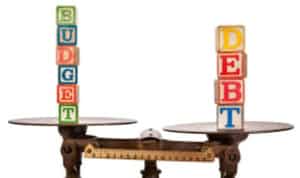 In our last bankruptcy trustee blog A Balanced Budget Is To Financial Health What A Balanced Diet Is To Physical Health – Part 1, we discussed the importance of a budget to help you establish your spending limits, reduce your spending and if you stick to your budget, live within your means. This week in A Balanced Budget is to Financial Health What a Balanced Diet is to Physical Health – Part 2, we’ll be discussing a case from our files and explaining how important a balanced budget is when working with a bankruptcy trustee.
In our last bankruptcy trustee blog A Balanced Budget Is To Financial Health What A Balanced Diet Is To Physical Health – Part 1, we discussed the importance of a budget to help you establish your spending limits, reduce your spending and if you stick to your budget, live within your means. This week in A Balanced Budget is to Financial Health What a Balanced Diet is to Physical Health – Part 2, we’ll be discussing a case from our files and explaining how important a balanced budget is when working with a bankruptcy trustee.
When we consult with a consumer debtor, one of the most important things for them to have is a balanced budget. In the cases of bankruptcy or proposal, a balanced budget is not optional; it is a requirement that they present us with a balanced budget as it needs to be filed in the public domain as part of their bankruptcy or proposal. In fact I will not sign off on one that doesn’t balance (except in extenuating circumstances). There are several reasons that a bankruptcy trustee says a balanced budget is a requirement for bankruptcy or proposal:
1. An insolvency filing cuts off access to credit for the debtor so they have to live within their means.
2. It is a requirement of the Act to show rehabilitation.
3. Living off credit is a likely contributor to the financial difficulty in the first place. While a proposal or bankruptcy will settle the present debts, if the lifestyle changes aren’t made the greater problem, chronic debt, won’t be solved. A bankruptcy trustee has the duty to ensure that rehabilitation has taken place.
From the files of Ira Smith Trustee & Receiver Inc.: Brian and Julie are married with no children. They can no longer afford their present lifestyle based on their income. Brian works limited part-time hours (and clings to the belief that he needs to be home at all times to work on call so he can work his way up in the ranks). Julie lost her full-time job and is having trouble finding one with equivalent hours/pay. This has been going on for over 2 months now and they have not readjusted their budget to account for the change in income. Although they do not live an extravagant lifestyle, they have become reliant on credit to maintain their lifestyle. Now they are caught in a viscous cycle; they are taking on new debt at a time they are seeking relief from the old debt they can’t pay. The reality is that until they balance a budget, even on a temporary basis, as a bankruptcy trustee, we can’t help with the old debt as they cannot live on their combined family income without incurring more debt. Therefore, they are stuck in limbo.
There are many ways to get into debt, but getting out of debt is not a do-it-yourself project. If you’re experiencing serious debt issues you need professional help from a bankruptcy trustee as soon as possible. Contact Ira Smith Trustee & Receiver Inc. today. Starting Over, Starting Now we can put you back on track to financial health.









